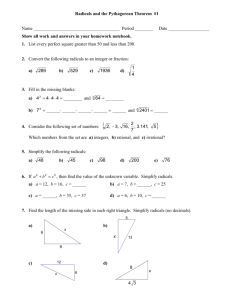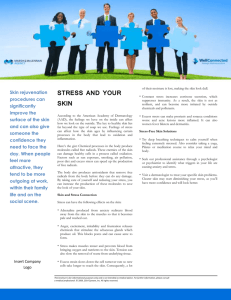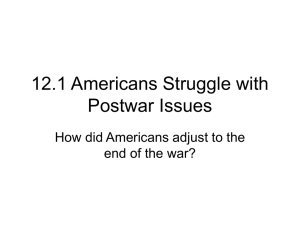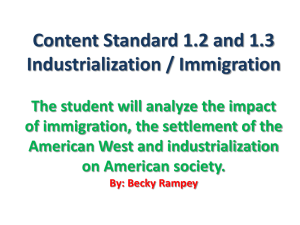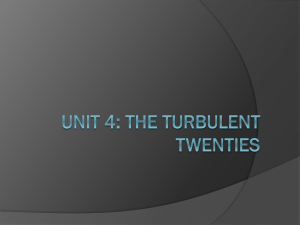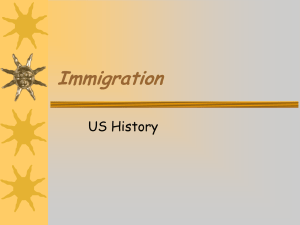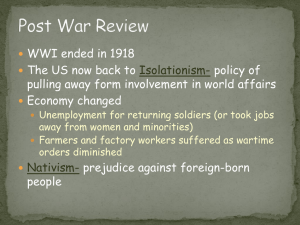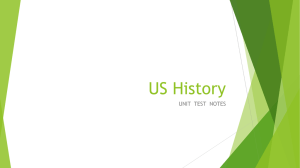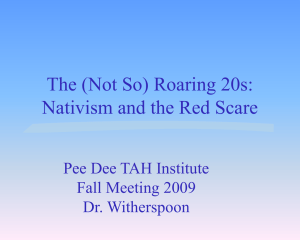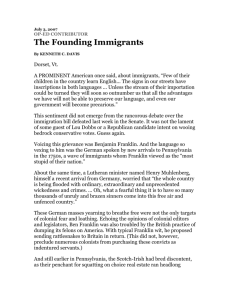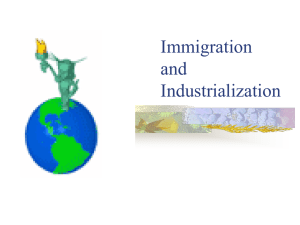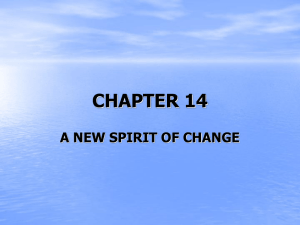Postwar Havoc
advertisement
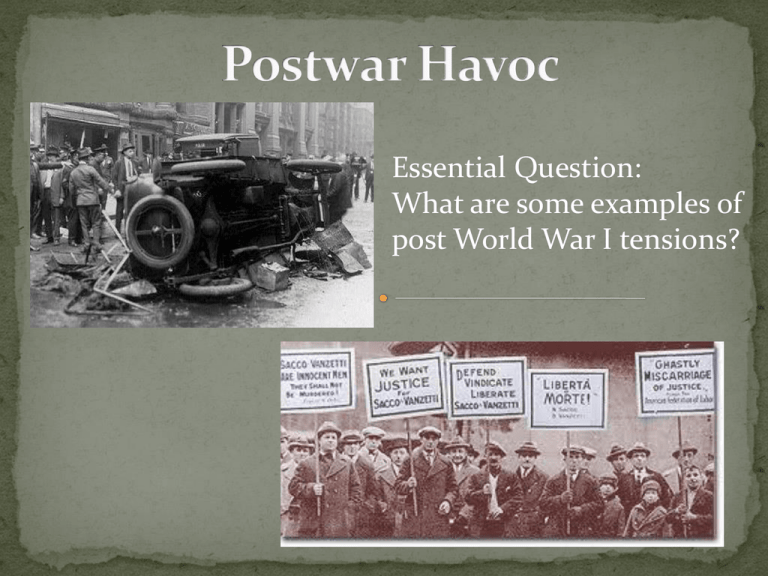
Essential Question: What are some examples of post World War I tensions? WWI Ends in 1918 and Americans temporarily rejoice Economic and political turmoil casts a dark shadow over victory Farm and factory production decreases as demand falls Returning veterans have trouble finding employment 100% Americanism movement emerges Celebrates all things American Attacks ideas and people that are foreign Russian Revolution of 1917 begins Lenin’s dream is to have an international worker’s revolution Americans embraced capitalism Became fearful of Communists and radicals – known as the Red Scare In 1919 radicals played a role in which bombs were mailed to gov’t officials – plot failed. Mitchell Palmer (Attorney General of the U.S.) was one of the targets. Led attacks on radicals He arrested and deported hundreds of aliens Most explosive times in labor history – 4 million workers participated in 3,000 strikes President Wilson kept workers happy to prevent strikes during WWI When war ends his priorities change Red Scare weakens labor movement Competition for scarce jobs and Red Scare lead to the rise of nativism. Clash between older immigrants (protestant Christians from N + W Europe) vs. newer immigrants (Catholics and Jews from S + E Europe) Push to limit immigration of these groups 1921 passed a quota – est. # of immigrants from each country allowed to enter National Origins Act of 1924: set quotas to 2% of the # of people living in the U.S. at 1890. Relative proportions of immigrants from Northwestern Europe (red) and Southern and Eastern Europe (blue) in the decades before and after the immigration restriction legislation. Started as a terror group that targeted AfricanAmericans. Hate group began to targets Jews, Catholics and radicals. Slogan of 1920s: “Native White, Protestant supremacy” Spread to other areas of U.S. Talk to your neighbor: What are some examples of post World War I tensions?
